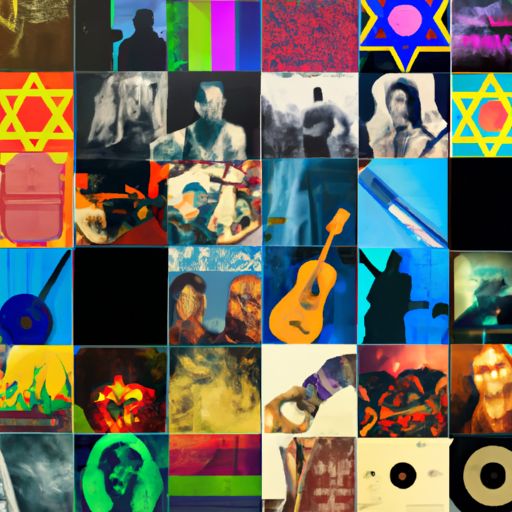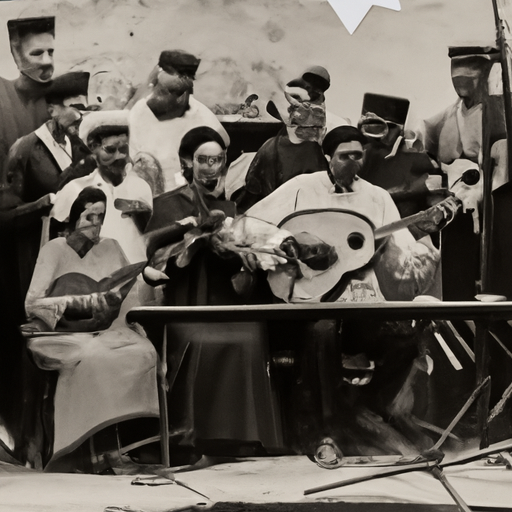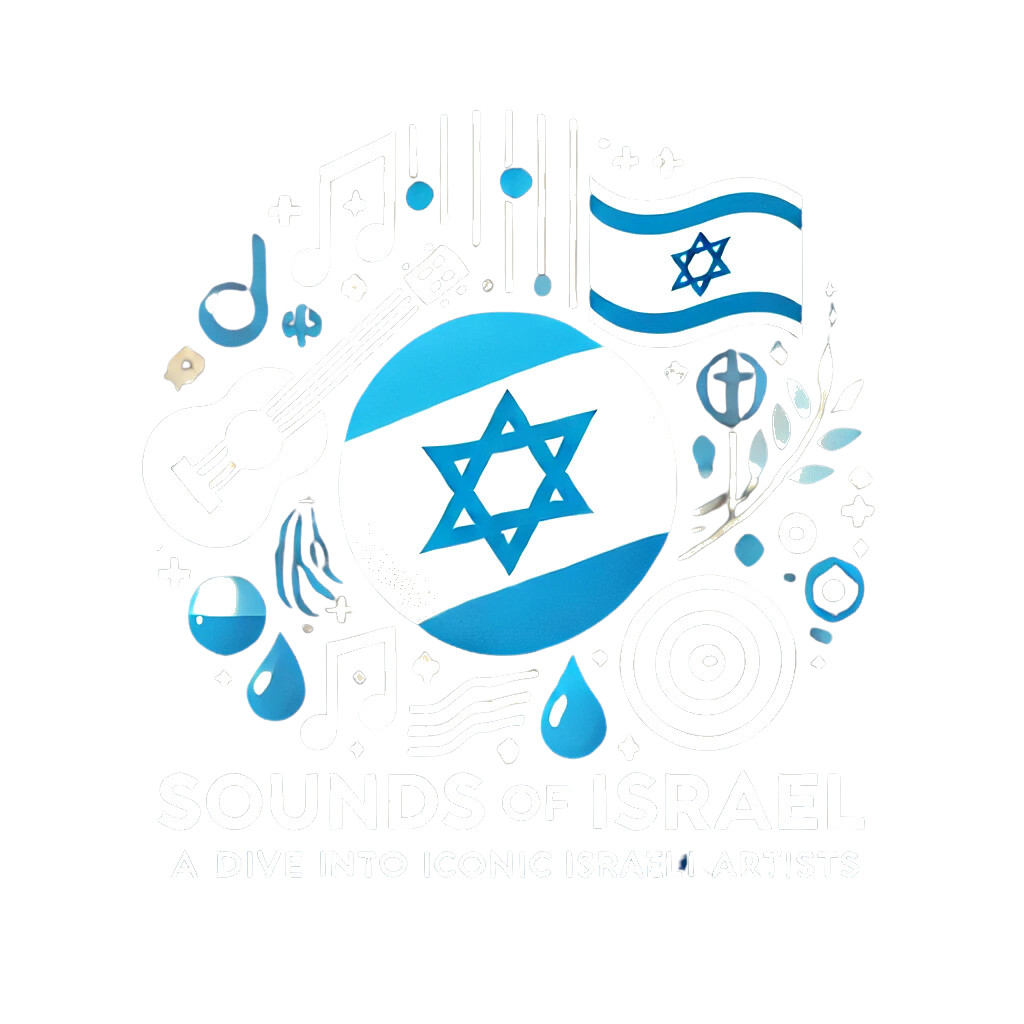This blog post delves into the intricate relationship between Israeli music and national identity, examining how the former serves as a mirror of the latter. It investigates the cultural, political, and historical threads that weave together to create an auditory soundscape that reflects Israel’s diverse identity.
“Music as a Melody of Diversity: How does Israeli Music Reflect Cultural Plurality?”
Israeli music serves as a vibrant tapestry woven with threads of cultural diversity, reflecting the rich mosaic of identities within the nation. From traditional folk songs rooted in ancient Hebrew texts to modern pop tunes infused with diverse musical influences, Israeli music embodies a range of cultural expressions. The blending of Eastern and Western musical traditions, as well as the incorporation of styles from various immigrant communities, contribute to the eclectic nature of Israeli music. This fusion of sounds mirrors the multicultural society of Israel, where individuals from different backgrounds come together to create a harmonious symphony of voices and melodies.

A collage of album covers from various Israeli musicians, representing a mix of genres and eras.
The Political Harmony: Can the Intersection of Music and Politics be Disentangled?
The intersection of music and politics in Israeli music is a complex and deeply intertwined relationship that reflects the socio-political landscape of the nation. Throughout history, Israeli musicians have used their art as a tool for political expression, addressing issues such as conflict, identity, and social justice. From protest songs advocating for peace to anthems celebrating national pride, music has been a powerful medium for conveying political messages and shaping public discourse.
However, the question remains: can the realms of music and politics truly be separated, or are they destined to remain inextricably linked?
Israeli musicians have often found themselves navigating the delicate balance between artistic freedom and political constraints, with some choosing to use their platform to challenge the status quo and others opting for a more neutral stance. The music scene in Israel serves as a reflection of the diverse perspectives and ideologies present within society, with artists representing a spectrum of political beliefs and values. Whether through subtle lyrical references or overt political statements, Israeli music continues to be a space where the personal and the political converge, sparking debates and conversations about the role of art in society. The fusion of music and politics in Israel raises important questions about the power of music as a tool for social change and the ethical responsibilities that come with wielding that power.
“Echoes from the Past: How does Israeli Music Preserve Historical Narratives?”
Israeli music serves as a powerful vessel for preserving and transmitting historical narratives, capturing the essence of the nation’s rich and complex history. Through melodies, lyrics, and rhythms, Israeli musicians evoke memories of significant historical events, cultural traditions, and societal struggles, ensuring that these stories are not forgotten. By drawing inspiration from the past, Israeli music creates a bridge between generations, allowing listeners to connect with their heritage and gain a deeper understanding of their roots. From traditional folk songs that recount tales of ancient Israel to modern compositions that reflect on the challenges of contemporary society, Israeli music weaves together the threads of history into a tapestry of sound and emotion.
One of the ways in which Israeli music preserves historical narratives is through the reinterpretation of traditional songs and melodies, infusing them with new meanings and contexts that resonate with contemporary audiences. These musical adaptations breathe new life into age-old stories, offering fresh perspectives on historical events and cultural practices. Additionally, Israeli musicians often draw inspiration from historical figures, landmarks, and moments, using their music as a medium to honor and commemorate the past. By incorporating elements of nostalgia, reverence, and reflection, Israeli music becomes a living archive of the nation’s collective memory, ensuring that the voices of the past continue to echo through the present and into the future.

A vintage photograph of an Israeli folk music ensemble from the early days of the State of Israel.
“Voices of the Future: In what ways does Contemporary Israeli Music Shape and Reflect Emerging Identities?”
Contemporary Israeli music serves as a dynamic mirror reflecting the evolving identities and diverse experiences of the nation’s population. Through a blend of traditional influences and modern innovation, Israeli musicians navigate the complexities of identity, challenging stereotypes and redefining cultural norms. In an era characterized by globalization and rapid social change, Israeli music acts as a catalyst for exploring the intersections of individual and collective identities, weaving together threads of heritage, religion, ethnicity, and nationality into a vibrant musical tapestry. By embracing a fusion of styles, genres, and languages, contemporary Israeli music captures the essence of a society in flux, where old and new, East and West, secular and religious, converge to create a harmonious symphony of diversity.
Moreover, contemporary Israeli music provides a platform for marginalized voices and underrepresented communities to express their unique perspectives and assert their place within the cultural landscape. By amplifying the narratives of minorities, immigrants, LGBTQ individuals, and other marginalized groups, Israeli musicians challenge mainstream narratives and advocate for greater inclusivity and social justice. Through their lyrics, melodies, and performances, these artists shed light on the complexities of identity formation in a rapidly changing world, inviting listeners to engage with issues of belonging, acceptance, and empowerment. In doing so, contemporary Israeli music not only reflects the emerging identities of the nation but also actively shapes and informs the cultural conversations and debates of the future.
Israeli music is undeniably a rich tapestry of culture, history, and identity. Its genres, lyrics, and rhythms echo the country’s multi-layered narrative, presenting a fascinating insight into the Israeli experience. The intersection of music and identity in Israel is a poignant reminder of the power of art to both shape and reflect society.
